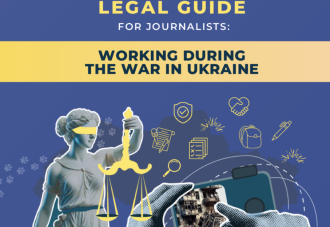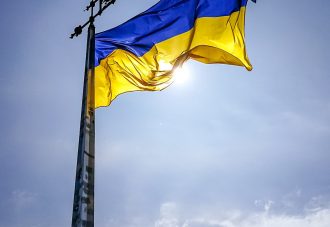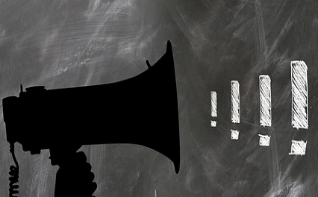On February 2, 2021, the President of Ukraine by his Decree No. 43/2021 put into effect the resolution of the National Security and Defense Council “On the imposition of personal special economic and other restrictive measures (sanctions)” on MP Taras Kozak and a number of companies associated with NewsOne, 112 and ZIK TV Channels.[1]. As a result of this decision, the broadcasting of these TV channels was terminated in the terrestrial digital network and packages of cable operators, IPTV, OTT providers. Blocked TV channels referred to the sanctions as censorship, and the chairperson of the National Union of Journalists of Ukraine said it was an attack on freedom of speech. But is it so?
What are Taras Kozak’s channels?
The creation of TV channel 112 is connected with scandalous competitions for regional digital broadcasting in the terrestrial digital television network, publicly known under the brand “T2”. As a result of non-transparent competition in 5 regions, licenses were obtained by unknown companies, which, contrary to the license conditions, began to retransmit the satellite channel “112”, which received a license back in 2013. Despite the regulator’s efforts to force broadcasters to comply with the license, channel representatives have ignored the regulator’s demand for years. This situation lasted until 2019, when, finally, 5 regional broadcasters did not have their licenses renewed. NewsOne TV channel, owned by Vadym Rabinovych, the current leader of the Opposition Platform For Life faction, was sold to then-MP Yevhen Muraiev in 2014 and then to Taras Kozak in 2019. In the same year, 2019, Taras Kozak bought ZIK TV channel from politician Petro Dyminskyi.
Thus, Viktor Medvedchuk’s ally Taras Kozak officially owned three information channels. However, Taras Kozak’s biography gives grounds to claim that he is the nominal owner, as Mr. Kozak was working in public authorities and elected positions for a long time.
The activity of Mr Kozak’s TV channels can be assessed as coordinated inauthentic behavior, which consisted in the biased presentation of information, topics of discussion, and especially in the selection of experts and participants in talk shows.
From the very beginning, TV Channel 112 and NewsOne, and, after acquisition by Mr Kozak, ZIK TV channel showed complete disregard for professional journalism standards, were spreading manipulative messages, Russian propaganda and outright disinformation, such as broadcasting fake hearings from the US Congress. The Independent Media Council has repeatedly exposed the spread of hate speech, and the National Council of Ukraine for Television and Radio Broadcasting has fined channels several times and even planned to revoke NewsOne’s broadcasting license.
The fines were imposed for the violation of Part 2 of Article 6 of the Law of Ukraine “On Television and Radio Broadcasting” – a ban on broadcasting television programs that promote the aggressor state authorities and their individual actions that justify or recognize the legitimate occupation of Ukraine.
Protecting national security or attacking freedom of speech?
The European Court of Human Rights (ECHR) considers it lawful to restrict freedom of expression, if it is carried out on the basis of law, in order to achieve a legitimate aim and corresponds to the level necessary in a democratic society. Let’s try and analyze the decision to block the channels on the basis of a three-part test.
- Lawfulness. According to Article 3 of the Law of Ukraine “On Sanctions”, sanctions can be imposed on foreign persons and companies, as well as on entities engaged in terrorist activities. And in accordance with Part 3 of Article 5, the decision on the imposition of sanctions is made by the National Security and Defense Council of Ukraine (NSDC) and put into effect by a decree of the President of Ukraine.
An investigation by the Security Service of Ukraine (SSU), which led to a decision by the National Security and Defense Council, found that Taras Kozak and related companies were involved in terrorist financing. According to the Ukrainska Pravda Online Newspaper, SSU revealed cooperation between the TV channels and the Donsie Ugli Trading House Company, which conducts its activities in the occupied territories. In addition, as a result of the investigation, on February 2, 2021, the SSU also initiated criminal proceedings under Article 258-5 of the Criminal Code of Ukraine (terrorist financing).
Note that terrorist activity means not only the commission of terrorist acts, but also the propaganda and dissemination of the ideology of terrorism, financing and other terrorism assistance. The Counter-Terrorism Law also prohibits the dissemination through the media or otherwise of information that, inter alia, is intended to promote or justify terrorism, contains statements by persons who resist or call for resistance to an anti-terrorist operation.
- Legitimate goal. According to Article 34 of the Constitution of Ukraine, freedom of expression may be restricted by law, in particular for reasons of national security and territorial integrity. And for a long time, NATO officials have been emphasizing that blocking Russia’s resources is a matter of national security, rather than censorship policies to restrict freedom of expression. In addition, the ECHR stated in Roj TV A/S v Denmark that the dissemination of terrorist content or the support of terrorist organizations is an abuse of freedom of expression. Therefore, the limitation of resources that disseminate such narratives pursues the legitimate aim of protecting the population from public order violations and protects national security.
In this case, given the content distributed by the blocked resources, there was every reason to believe that there is a threat to the protected interests (national security and public order). In addition, the accusation of terrorist financing, based on information provided by the SSU, indicates support for the activities of terrorist organizations, which is also prohibited. Thus, TV channel blocking pursued a legitimate goal.
- The need for a democratic society. According to Zarubin and Others v Lithuania, the media should adhere to the standards of “responsible journalism” when covering any event. In addition, such a standard applies to the general conduct of the media representatives in public and the fact that journalists or other employees violate the law is relevant, though not decisive, in determining whether they acted responsibly. In addition, the ECHR noted in Yavuz and Yaylalı v Turkey that the dissemination of messages justifying actions of terrorists, humiliating victims of attacks, calling for terrorist organization financing or other similar acts was deemed to be incitement to terrorism and therefore an abuse of freedom of expression. In the aforementioned Roj TV A/S v Denmark, the Court stated that if there were sufficient grounds to believe that the media had committed such acts, the revocation of the broadcasting license was a necessary and proportionate measure, as the detrimental effects on society were very significant.
In the case of NewsOne, 112 and ZIK, in addition to a long history of breaches of the national law and abuse of the right to freedom of expression, probable offenses are seen not only in the distribution of content but also in the organization of the media activity as such. In fact, in such a situation, any activity of resources threatens the national security of Ukraine, and therefore serves as the basis for the application of sanctions. Given that the violations were systematic and the narratives of the media remained unchanged over the years, resource blocking is a proportionate measure.
Thus, even if the measures are appealed, the ECHR will be the final point for NewsOne, 112 and ZIK. There are two aspects that need to be clarified:
- Statement pursuant to Rule 39 of the Regulation on the Application of Urgent Measures to Respond to Human Rights Violations and Suspension of Blocking. A similar precedent happened in Georgia – Rustavi 2 Broadcasting Company Ltd and others v Georgia. Back then, in 2017, the ECHR suspended the blocking of Rustavi 2, as it was virtually the only opposition channel. In the case of Ukraine, it is not a matter of opposing the opposition, but of blocking channels financed by the aggressor country, so the ECHR may refuse to suspend it.
- Consideration of the claim in the Court. If the restriction is lawful, pursues a legitimate aim and is necessary in a democratic society, the ECHR does not find a violation of the rights protected by Article 10 of the European Convention on Human Rights. Given that this was the case for the blocking of TV channels in the Ukraine, the European Court of Human Rights is unlikely to lift blocking from the channels.
The Centre for Democracy and Rule of Law considers the decision to block Taras Kozak’s assets, including NewsOne, 112 and ZIK, justified in a democratic society, especially in a situation where the country is at undeclared war with the Russian Federation. We are convinced that a proper and high-quality investigation of terrorist activities by the SSU and the further criminal prosecution of those who acted as organizers of such activities or their accomplices is extremely important both in the context of protecting national security and sovereignty and protecting the journalistic profession from disinformation and special propaganda and subversive campaigns.
[1] ARIADNA TV LLC, NOVYI FORMAT TV LLC, TV VYBIR LLC, 112-TV TV AND RADIO COMPANY LLC, LIDER TV LLC, PARTNER TV LLC, NOVYNY 24 HODYNY (24 HOURS NEWS) LLC and Novi Komunikatsii (New Communications) LLC


